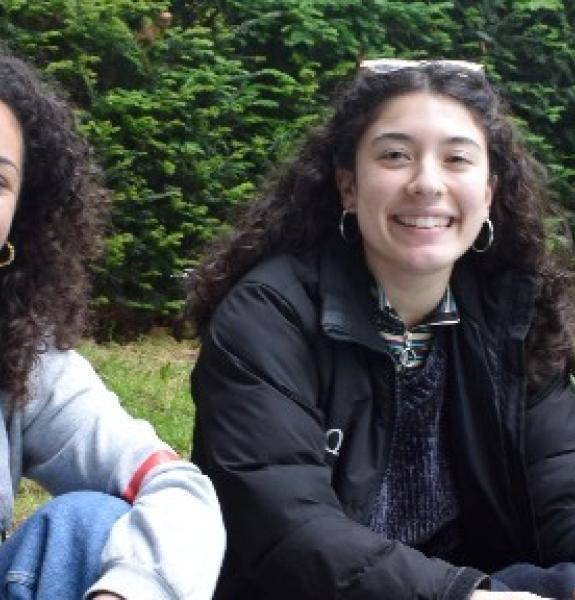A brief History of the Visual Arts Centre at Christ’s College – by Alan Munro
In 1997, I was approached by the Director of Kettle’s Yard, Michael Harrison, enquiring if by any chance the College had space to house a Video artist called Marion Kalmus for a year. I had, for a long time, felt that the University and College provide outstanding opportunities for sport, music and drama, but very little for the visual arts. I had also identified the space on the first floor above the furniture shop on King Street as unsuitable for commercial letting. Kettle’s Yard were willing to pay a modest rent and our Maintenance Manager (then Tony Weaver) felt that it would be very easy to make part of the space suitable for Marion Kalmus’ work. In this way the Art Centre started.
Kettle’s Yard expressed an interest to rent space again for the next academic year, and the College Council agreed that the Maintenance Department could spend a modest sum working in the summer to convert the whole of the first floor into three large studios. Also at this time the College was extremely fortunate to receive a donation from Ruben Levy and Shelby White, which together with funds from Sir John Plumb, created the Levy Plumb fund, which agreed to fund a graduate studentship in the Visual Arts with the first appointment in the summer of 1998.
Somehow I felt that we should be able to use the third studio to make sure that Christ’s students would get the opportunity, and be encouraged, to try life drawing. Again, I was approached by Issam Kourbaj, a Cambridge artist who was looking for studio space to rent. Issam has had many years experience as a teacher to people at all levels of ability. The Council agreed that I could offer Issam one of the studios free of rent on condition that he provided life drawing classes for Christ's College students. Much has changed since then, but the College is delighted to have Issam still working in one of its studios.
In addition the Centre has been used for exhibitions and for the student picture loan scheme. Later the only usable room on the second floor has been let commercially either for storage or for creative artists.
Kettle’s Yard Artist’s in Residence
1997-98 Marion Kalmus http://www.marionkalmus.com/
1998-99 Stephen Chamers RA http://stephenchambers.com/
1999-00 Jaun Cruz
2000-01 Jane Dixon ; ; ; http://www.janedixon.net/
2001-02 Claude Heath http://www.claudeheath.com/texts/article7.php
2002-03 Marion Coutts http://www.marioncoutts.com/cv.html
Since 2003, there have not been funds from Kettle’s Yard to support an artist in residence. The studio space that Kettle’s Yard had used is now let by the College – from 2009 to Anthony Smith a sculptor and Christ’s alumnus (m. 2004).
Past and present Levy-Plumb Visual Arts Studentship Holders
2010-2011: Anna Trench
2009-2010: Naomi Grant
2008-2009: Tom de Freston
2007-2008: Verica Kovacevska
2006-2007: Beatrice Priest
2005-2006: Vanessa Hodgkinson
2004-2005: Sarah Howe
2003-2004: Anton Burdakov
2002-2003: Steve Jamison
2001-2002: S J Mockler
2000-2001: S McMillan
1999-2000: J J F Wilenius
1998-1999: Lachlan Goudie
Past and present Visual Arts Award Holders
2011-2012: Rachel Briggs, Helen Taylour, Rosa Uddoh
Charles Darwin and Galapagos Islands Fund
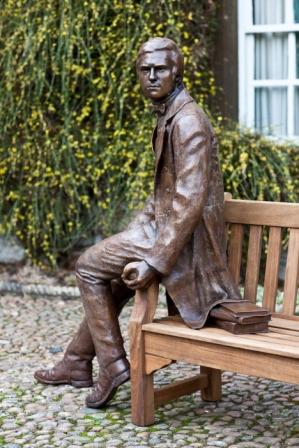 Charles Darwin was one of the most distinguished alumni of Christ’s College, and the most important visitor to the Galapagos Islands. Prior to his five-year voyage on HMS Beagle, Darwin was an undergraduate at Christ’s, and returned to the College in the period immediately afterwards. It was from observations made on this voyage, especially of the Galapagos mockingbirds, that Darwin later drew the evidence to support his theory of evolution by means of natural selection.
Charles Darwin was one of the most distinguished alumni of Christ’s College, and the most important visitor to the Galapagos Islands. Prior to his five-year voyage on HMS Beagle, Darwin was an undergraduate at Christ’s, and returned to the College in the period immediately afterwards. It was from observations made on this voyage, especially of the Galapagos mockingbirds, that Darwin later drew the evidence to support his theory of evolution by means of natural selection.
Christ’s College and the Galapagos Conservation Trust are establishing a lasting partnership between distinguished scientists and researchers with a fund intended to provide support for the activities of people who have shown evidence of distinction in their chosen research field, relevant to present-day aspects of the work originally undertaken by Charles Darwin and which will help to promote the scientific understanding, conservation and long-term welfare of the Galapagos Islands. We work with the Charles Darwin Foundation and the initiative recognises and wishes to commemorate the immense importance of Darwin’s time spent collecting and observing on the archipelago.
The first Charles Darwin and Galapagos Islands Fellow was Dr Mike Stock, a volcanologist, who was in post from 2016 to 2019, and who is now Assistant Professor in Geochemistry and Director of the Earth Surface Research Laboratory, at Trinity College, Dublin. The current Charles Darwin and Galapagos Islands Fellow is Dr Katie Dunkley, a behavioural ecologist, based in the Department of Zoology, who aims to understand the dynamics of animal interactions and ecological networks. Her research focuses on behavioural interactions at a community level to explore how and why animals interact. She is passionate about the marine environment and its conservation, with her previous and future research focusing on coral reefs.
Charles Darwin had a rare genius, nurtured to a considerable extent by his experiences and the friendships generated during his time at Christ’s and during his voyages on the Beagle.
As well as the Fellowship, the Fund supports a Scholarship Scheme (application form).
Pierre-Louis CURIEN 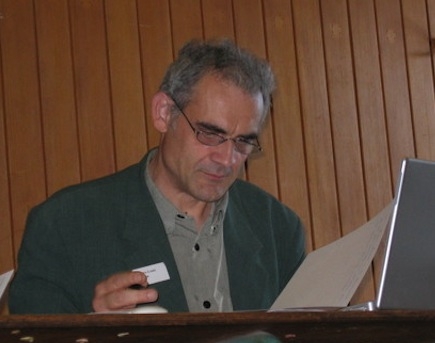
Distinguished Visiting Scholar April to June 2010
Founder and director of the laboratory "Proofs, Progrtams and Systems", joint between CNRS and University Paris Diderot
Email: curien "at" pps.jussieu.fra
Website: http://www.pps.univ-paris-diderot.fr/~curien/
Professor Curient is a former student of Ecole Normale Supérieure, where he studied mathematics before specialising in the field of theoretical computer science. He is a senior CNRS reseacher.
His main interests lie in the semantics of programming languages, with applications to the verification and certification of software, and to the desgin and implementation of programming languages, using tools from mathematical logic, algebra, and topology.
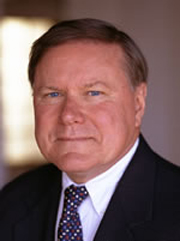 Charles R KENNEL BSc Harvard, PhD Princeton
Charles R KENNEL BSc Harvard, PhD Princeton
Distinguished Visiting Scholar January to April 2010
Professor and Director Emeritus, Scripps Institution of Oceanography, University of California San Diego, USA
Email:
Website: http://www.galcit.caltech.edu/space50/program/speakers/KennelC.html
Professor Kennel is Chair of the USA National Academies Space Studies Board Educated in astronomy and astrophysics at Harvard and Princeton he joined the UCLA Department of Physics, pursued research and teaching in space plasma physics and astrophysics, chaired the department, and eventually became the UCLA Executive Vice Chancellor, its chief academic officer.
From 1994 to 1996, Professor Kennel was Associate Administrator at NASA and Director of Mission to Planet Earth, the world's largest Earth science program. His experiences at NASA convinced him of the growing importance of Earth and environmental science, and he decided to devote the rest of his career to these and related fields. He became the ninth Director of Scripps Institution of Oceanography and Vice Chancellor of Marine Sciences at the University of California, San Diego, serving from 1998 to 2006.
Professor Kennel was the founding director of the UCSD Environment and Sustainability Initiative. He presently is a distinguished professor, emeritus, of atmospheric sciences at Scripps, senior strategist for the UCSD Sustainability Solutions Institute, and leads the University of Cambridge/UCSD Global Water Initiative.
A member of the National Academy of Sciences, the American Academy of Arts and Sciences, the American Philosophical Society, and the International Academy of Astronautics, Professor Kennel has served on many national and international boards and committees, including the Pew Oceans Commission. He was a member of the NASA Advisory Council from 1998 to 2006, and its Chair from 2001 to 2005. He presently chairs the California Council on Science and Technology and the Space Studies Board of the US National Academy of Sciences.
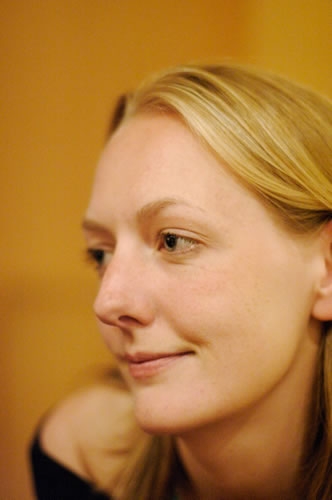 Helen CRAWFORTH BA PhD
Helen CRAWFORTH BA PhD
Fellow since 2009
Junior Research Fellow
Email: hlc40 "at" cam.ac.uk
Helen's research focuses around problems of meaning and form in twentieth-century literature, literary criticism and philosophy of language, with particular emphasis on the critical prose of William Empson and the philosophical papers of J.L. Austin.
She has recently completed a PhD thesis titled 'Occasions for Criticism: Forms of Meaning in the Prose of William Empson',
While she concentrates, in research and teaching, on nineteenth and twentieth-century literature and critical thought, her interests also extend to the phenomenology of dance and to various forms of response to Wittgenstein.
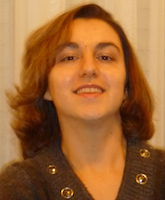
Dr Natasha GRIGORIAN
Director of Studies in Russian and Ukranian 2009-10
Fellow of Fitzwilliam College
Email: ng321 "at" cam.ac.uk
Website: http://www.mml.cam.ac.uk/slavonic/staff/ng321/
Natasha Grigorian mainly works on late nineteenth- and early twentieth-century European literature (especially poetry) and visual art. Before coming to Cambridge, she studied at Oxford, also undertaking academic exchange visits to the University of Paris-Sorbonne (Paris IV) and Moscow State Lomonosov University. Her comparative research relates Russia at the turn of the century to France and Germany of the same period, with a special emphasis on French Symbolist influence across Europe. Within this area, she specialises in intercultural transaction; the relationship between word and image; literary and artistic uses of myth; poetic evocations of women; and issues of aesthetics. She is the author of a recent monograph, European Symbolism: In Search of Myth (1860-1910), published with Peter Lang International Publishers in 2009 as Volume 14 in the prestigious series Romanticism and after in France. Featuring 27 colour illustrations from leading museums worldwide, this book is the first comparative study of the Symbolist use of myth in France, Germany, and Russia, with special reference to the French painter Gustave Moreau and his inspirational role for poets in Western Europe and Russia alike. Natasha Grigorian's articles on Moreau, Redon, Huysmans, Heredia, Moréas, Bryusov, and George have appeared in Nineteenth-Century French Studies, Comparative Critical Studies, and The German Quarterly. Her current research project moves on to examine representations of femininity in Symbolism and its legacy, with particular attention to Alexandr Blok, among others.
Sunday Choral Evensong at 6pm
Easter 2025 - 'Let's Play!'
Play is not a trivial matter. It is a fundamental means of human exploration and expression: a medium through which we engage with our creativity, aspirations and limits. We play alone, or in community, through sport and art, dance and drama, and all manner of games and gaming. What better theme for the exam term when our favourite play can be a welcome distraction and de-stressor. View the Easter Term 2025 card.
4 May: Revd Dr Helen Orchard, Chaplain and Fellow: 'Christianity: Just clever Cosplay?'
11 May: Prof Jenny Gibson, Professor of Neurodiversity and Developmental Psychology, Cambridge University: 'Developmental Play and Neurodiversity'
18 May: Revd Simon Archer (aka 'The Gaming Vicar'), Priest-in-charge, Arbory and Castletown: 'God and Gaming'
25 May: Revd Russell Dewhurst, Acting Archdeacon of Chichester: 'No more missing pieces: God, board games and the completion of all things'
1 Jun: Revd Matt Baker, Pastoral Support Director for English Football and Chaplain to Charlton Athletic FC: 'Faith and Football'
8 Jun: Canon Dr Samuel Wells, Vicar, St Martin-in-the-Fields, Visiting Professor of Christian Ethics, Kings College London: 'Godly Play'
15 Jun: The Chaplain: 'Playing with the Trinity: A 4-person game'
Other special services this term include Ascension Anthems from a high place at 8.15am on 29 May, and a Festal Choral Eucharist for Corpus Christi at 6.15pm on 19th June.
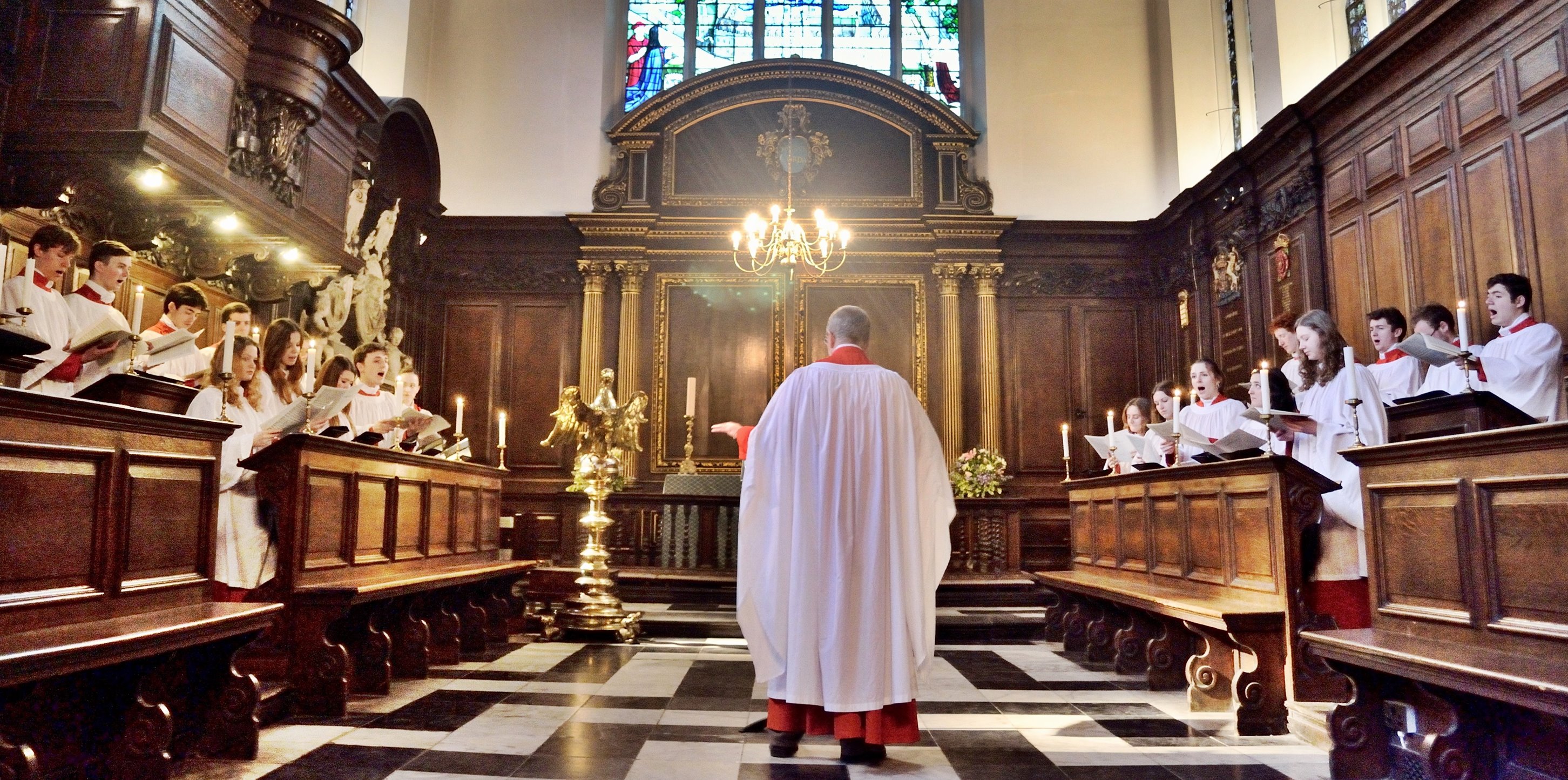
The Chapel stands in First Court, at the heart of the college, as a place of worship, reflection and enquiry. It is also a focus for the college community, where all are welcome. The Chapel is open every day, for those seeking a time of quietness, or to pray. For those who prefer a non-Christian space to pray and reflect the college also has a Multi-Faith Prayer Room near the library, to which there is 24 hour access.
Christ's College has one of the finest mixed-voice choirs in Cambridge and, during Term, the Choir enriches the worship of the Chapel by singing Evensong on Thursdays (6.30pm) and Sundays (6pm). Coming to Evensong is a wonderful way to hear the Choir, explore spirituality, and get to know a lively community of students, staff and Fellows.
The Chapel is used for a variety of services in Full Term, and weddings during the University vacation. It is also used for musical events and rehearsals during term-time. All services and events that use the Chapel space (including any visiting speakers or performers) are managed by the Chaplain. Please contact her on chaplain@christs.cam.ac.uk for details.
Picture credit: Chris Rowlands
Student Life / Grounds and Facilities at Christ's / Accommodation / Why Choose Christ's? / Exercise and Sport
Tour of the East Coast of the USA, Summer 2009

Edward Turnham, tour organizer, writes:
In June and July 2009, the College Choir gave a 19-day tour of the USA East Coast. We flew to Boston on Sunday 28th June, the day after singing Evensong to commemorate the 500th anniversary of the death of Lady Margaret Beaufort, and just two days after several singers had graduated with their BAs.
The tour did not immediately feel like a holiday; for one thing, the New England weather was resolutely miserable for all of the first week, and for another we had to perform three times in the first two days! We started with a one-hour appearance on Boston's WGBH radio station, which helped to draw big audiences to several of our early concerts. The first two evenings also saw two very successful concerts in Beverly and Wakefield, both medium-sized towns just to the north of Boston.
Right: Boston's Old State House
The weather did not dampen our spirits and we managed to take time out of our busy schedule to have a good look at Boston. For our next concert we revisited an old friend: the Cathedral of St. Paul in Burlington, Vermont, where the Choir has made enjoyable visits on previous tours. This year was no exception, and for the third concert in a row we performed to a full house. Our only regret was to have left ourselves little time to enjoy the sublime scenery and views over Lake Champlain and the Adirondack mountains.
One of the advantages of a choir tour over a normal holiday is the opportunity to make many strong friendships with those who organize our concerts and generously host our singers in their houses. The year the Choir made a special friend in Toby Twining, a well-known East Coast composer who helped set up our next concert, in Wolfeboro, New Hampshire. He did us the great favour of writing a piece, Eurydice's Letter, which we premiered at this concert and performed several more times during the tour. The complex harmonies and rhythms challenged the choir, but served to increase our satisfaction upon mastering this very fine work.
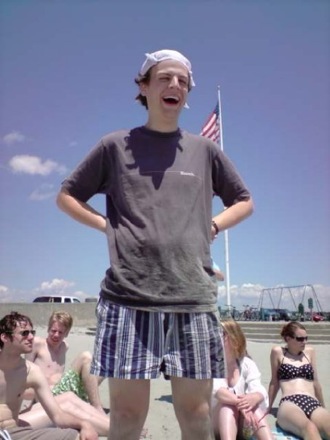 Fig. 3: the redcoats' beachwear was not of the latest fashion
Fig. 3: the redcoats' beachwear was not of the latest fashion
Again, we would have wished to spend more than one night in this beautiful setting on the banks of Lake Winnepesaukee, but in the morning we were back on the coach, destined for the equally sought-after summer resort of Newport, Rhode Island. Thanks to the generosity of the Church of St. John the Evangelist, we Brits were able to lie low over the 4th July weekend and soak up some rays on the beach; the weather turned good just in time! The more cultured of the group wisely chose to explore some of the town's palatial 'summer cottages', built in the 19th century by some of America's richest families.
As a contender for the mantle of 'Most exclusive choir tour venue', Newport was quickly in for some competition from the wonderfully well-preserved island of Nantucket. 20 miles off Cape Cod, this port was once the capital of the world's whaling industry (as romanticized in Herman Melville's Moby Dick) before undergoing economic decline and finally reinventing itself as a summer colony. We were lucky enough to perform in one of Nantucket's best-known landmarks, the massive First Congregational Church, from whose spire we were able to see the neighbouring island of Martha's Vineyard and even the mainland. As well as another successful concert, we enjoyed two days of exploring the town's cobbled streets and quaint shops, and - yes - more time on the beach.
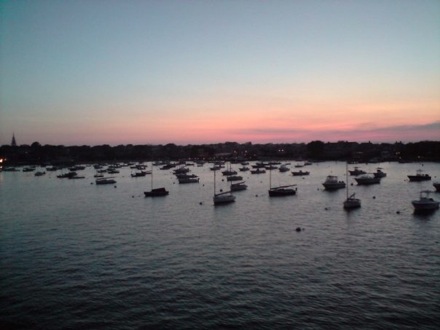
Nantucket harbour
Our final stop in New England was Falmouth, back on the mainland of Cape Cod. We sang another concert to a packed church, and two of our singers were privileged to stay with the former Master of Christ's, Sir Hans Kornberg, in his nearby home.
We set off early the next morning on the long route towards New York City. But just before reaching it we attempted a sneaky foray into the military capital of the American Revolution: Morristown, New Jersey. We met with rather more success than 230 years ago, with a well-received concert in the excellent acoustic of St. Peter's Episcopal Church. (see review)
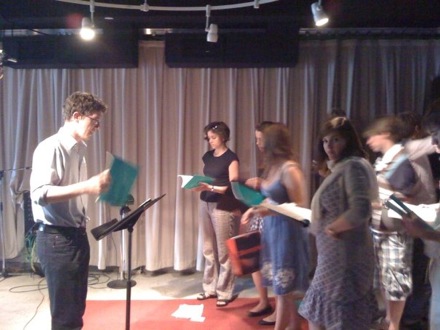
Right: Performing on WNYC radio
The next morning we finally reached Manhattan, where we had scheduled two days of sight-seeing. At least, that was the plan, before our timetable filled up with an appearance on WNYC radio, a drinks reception in Soho generously hosted by Cambridge in America, and our ensuing visit to a Koreatown karaoke bar. All were highly enjoyable, although the latter took many casualties - including several singers' dignity and one soprano's voice.
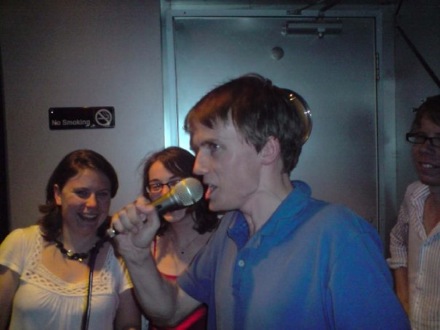
The stress of the Koreatown karaoke was the last straw for tour organizer Edward Turnham, who misused the audio equipment to vent an ill-tempered and occasionally foul-mouthed tirade at the choir, berating their slovenliness, personal hygiene and method of eating asparagus
Our New York visit ended on a very grand note, singing the Sunday morning Eucharist at the Cathedral of St. John the Divine. Performing Parry's I Was Glad in this 12-second acoustic was one of the musical highlights of the tour. After the service we departed the city quickly in order to perform a concert that evening at St. Peter's Episcopal Church, Philadelphia - one of the city's earliest churches. We were able to spend several hours the following day exploring Independence Hall - scene of the signing of the Declaration of Independence and the U.S. Constitution - and related sights.
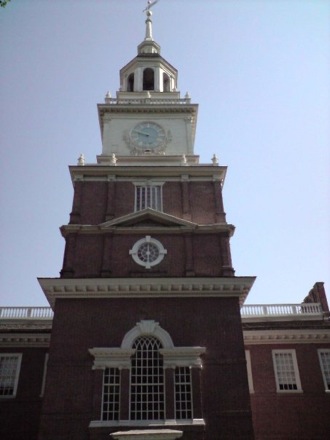 Left: Philadelphia's Independence Hall
Left: Philadelphia's Independence Hall
That evening saw perhaps our finest concert of the tour, in nearby Wilmington, Delaware. Spurred on by the crowd of 400 filling Christ Church Christiana Hundred, the Choir's concentration was superb throughout, despite this being the ninth concert of a gruelling tour.
The end was now in sight as we headed to our final hosts in Arlington, Virginia. This location allowed us three days of sightseeing in Washington D.C. - not enough for those of us who revelled in the Smithsonian museums and art galleries along the Mall. Our first evening included Evensong at the National Cathedral - a fine building but a challenging acoustic - and an excellent southern-style barbecue organized by Cambridge alumni.
Our final performance of tour was given to our hosts at the Memorial Baptist Church, Arlington. But the tour was far from over; to complete it required the obligatory Decani versus Cantoris football match. An attempt was made to change the contest's format to a rounders match, but the premature fracturing of our frankly inadequate plastic bat sent a portent that we should not meddle with our ancient traditions. Thus we hastily arranged a replacement football contest, although by this time half the choir had wilted in the Washington heat. The match was fiercely contested, and ended in the first victory for Cantoris in living memory.
By the end of the tour, most of the Choir were thoroughly fatigued in voice and body, but few wanted it to end. The visit was a great success in terms of both music and enjoyment, and it was all due to the commitment of the choir, the great generosity of all those members of the churches at which we performed who organized our visits and put us up in their houses, and the help of the College and the alumni in America.
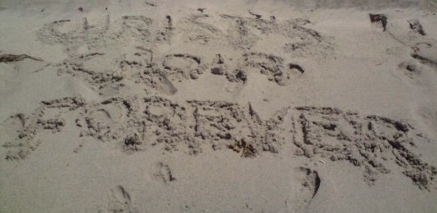
Performance Itinerary
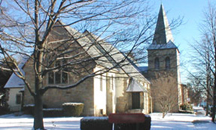 June 29: 7.30pm concert, St. Peter's Episcopal Church,
June 29: 7.30pm concert, St. Peter's Episcopal Church,
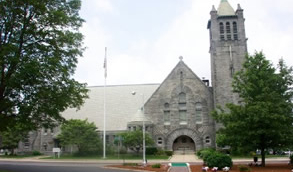 June 30: 7.30pm concert,
June 30: 7.30pm concert,
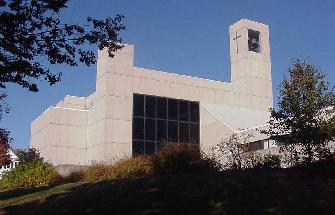 July 2: 7.30pm concert, Cathedral Church of St. Paul, 2 Cherry St, Burlington, VT 05401.
July 2: 7.30pm concert, Cathedral Church of St. Paul, 2 Cherry St, Burlington, VT 05401.
.
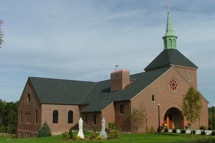 July 3: 7.30pm concert,
July 3: 7.30pm concert,
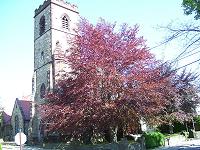 July 4-5: Liturgies at the Church of St. John the Evangelist, 61 Poplar St, Newport, RI 02840.
July 4-5: Liturgies at the Church of St. John the Evangelist, 61 Poplar St, Newport, RI 02840.
Saturday July 4: 6pm Evensong
Sunday July 5: 10am Sung Mass, 6pm Evensong
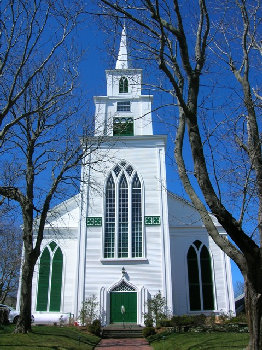 July 7: 7.30pm concert, First Congregational Church of Nantucket, 62 Centre St, Nantucket, MA 02554.
July 7: 7.30pm concert, First Congregational Church of Nantucket, 62 Centre St, Nantucket, MA 02554.
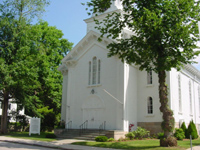
July 8: 8pm concert, First Congregational Church of Falmouth, 68 Main St, Falmouth, MA 02540.
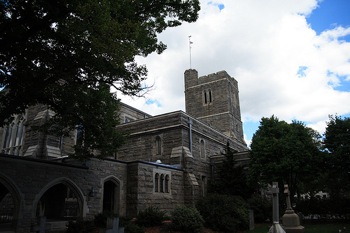 July 9, 7.30pm concert, St. Peter's Episcopal Church, 70 Maple Ave, Morristown, NJ 07960.
July 9, 7.30pm concert, St. Peter's Episcopal Church, 70 Maple Ave, Morristown, NJ 07960.
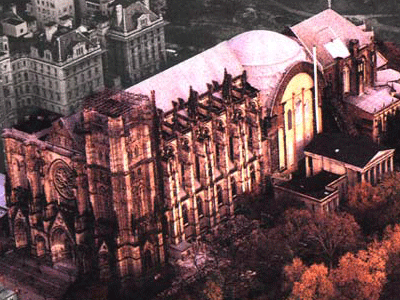 July 12: 11am Eucharist, Cathedral Church of St. John the Divine, NYC.
July 12: 11am Eucharist, Cathedral Church of St. John the Divine, NYC.
Kodaly Missa Brevis
Parry I was glad
Messiaen O sacrum convivium

July 12: 8pm concert, St. Peter's Episcopal Church,
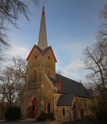
July 13: 8pm concert, Christ Church Christiana Hundred, 505 E. Buck Road, Wilmington, DE 19807-051.
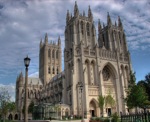 July 14: 5.30pm Evensong, Washington National Cathedral
July 14: 5.30pm Evensong, Washington National Cathedral
Introit: Shephard Holy is the true light
Canticles: Howells St. Paul's
Anthem: Elgar Give unto the Lord
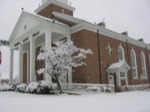 July 15: 8pm concert, Memorial Baptist Church, 3455 N Glebe Rd, Arlington, VA 22207.
July 15: 8pm concert, Memorial Baptist Church, 3455 N Glebe Rd, Arlington, VA 22207.
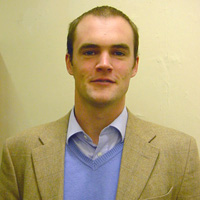
Dr Alex B BROADBENT
Senior Lecturer in Philosophy at the University of Johannesburg from September 2010
Director of Studies in Philosophy until 2010
University Teaching Associate in the Department of History and Philosophy of Science
Email:
Website: http://www.hps.cam.ac.uk/people/broadbent.html
Research interests: Causation, especially causal selection, and especially in applied contexts such as the law and natural sciences; epistemology and metaphysics of the biomedical sciences; counterfactuals and inductive inference; metaphysics, epistemology and philosophy of science; jurisprudence.
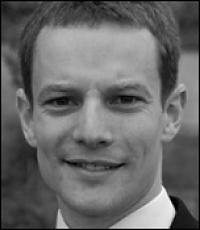 Director of Studies in Experimental Psychology
Director of Studies in Experimental Psychology
Fellow of Emmanuel College
University Lecturer in Experimental Psychology
Email: jss30@cam.ac.uk
Website: http://www.neuroscience.cam.ac.uk/directory/profile.php?jss30
Our research investigates the role of brain regions such as the frontal, medial temporal, and parietal lobes in human memory.
This work involves inter-relating cognitive hypotheses with evidence from functional neuroimaging of healthy volunteers and from examining the effects of neurological and psychiatric disorders, and normal aging, on memory abilities.
Research in the laboratory uses a number of methods, including behavioural studies, functional magnetic resonance imaging (fMRI), electrophysiology (MEG/EEG), and transcranial magnetic stimulation (TMS).

